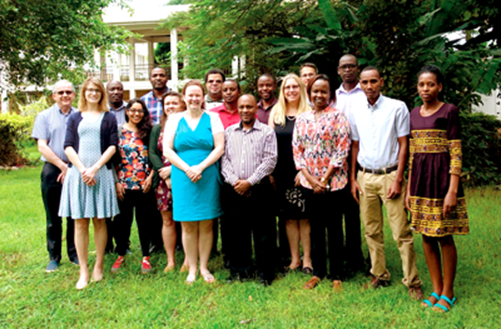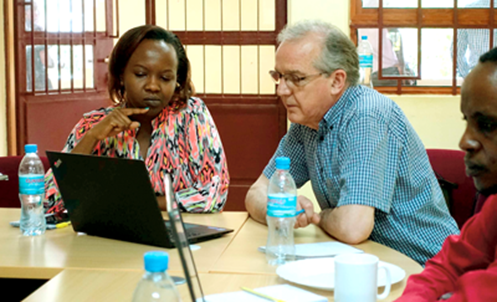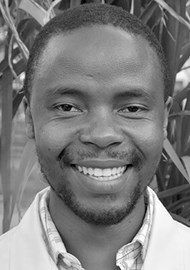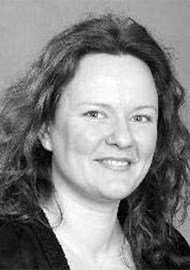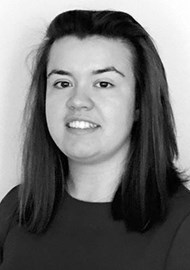Building capacity for ophthalmic research in low- and middle-income countries is an important aim of the VISION 2020 LINKS Programme. The International Centre for Eye Health (ICEH) at the London School of Hygiene & Tropical Medicine (LSHTM) has been working with the College of Ophthalmology of Eastern, Central and Southern Africa (COECSA) and the Royal College of Ophthalmologists (RCOphth) to improve the quality of research undertaken by clinicians in Sub-Saharan Africa. The initiative has been funded by the British Council for Prevention of Blindness [1].
Three ophthalmology training institutions in East Africa already participating in the VISION 2020 LINKS Programme were identified – Kilimanjaro Christian Medical Centre (KCMC) in Tanzania with Birmingham; University of Mbarara / Ruharo Eye Centre in Uganda with Bristol and University of Nairobi (UoN) / Kenyatta National Hospital in Kenya, which is part of the COECSA-RCOphth LINK.
Delegates from each institution and their corresponding UK partner had attended an initial Research Mentorship Workshop in early 2017 at KCMC in Tanzania, as described in Eye News Aug/Sept 2017 [2].
The aims of the project are:
- To strengthen the research methods within the ophthalmology MMed training curriculum in the three institutions.
- To increase the quantity and quality of research output in the three institutions over a five-year period.
- To establish a research network in ophthalmology between the COECSA institutions.
Participants in the 2018 Research Mentorship Workshop at KCMC.
Cascading the workshop at the COECSA Congress, Kampala – August 2017
Learning from the first Tanzanian workshop was cascaded to trainees in each institution and at the COECSA Congress in Kampala in August 2017 as a one-day session. The COECSA workshop was aimed as a refresher for ophthalmologists; in practice there was a wide range of experience amongst the 61 participants. The session started with how to develop the research question and design a project, using the easily remembered mnemonic PICO (population, intervention, comparison, outcome) [3]. Using examples of how this could be applied to any situation (such as a management issue to lower patient DNA rates), participants learnt how to target a research question to their practice and setting, and develop a research project.
Participants were then divided into four groups and set the task of coming up with a research question, including a clear rationale and objectives. The groups had a range of expertise, some with a lot of research experience, some who had attended the previous workshop at KCMC in January and others who were first year trainee ophthalmologists with very little experience. The research questions were then shared with the rest of the participants, giving all participants the opportunity to critically develop them.
Session 2 discussed study design and analysis. It covered the key priorities of planning, why planning is important and who to involve in it. Participants were then asked to go back into their groups and produce an analysis plan, the variables that would need to be measured and to design a dummy table for data collection. In the third session, the groups discussed the statistical analyses that would be needed for their studies. The study designs were presented to the room one by one, with the chance for open discussion.
During the last ten minutes of the session, the floor was open for feedback. Experienced researchers and new learners gave very positive feedback. It was agreed that the session be offered again at the following year’s COECSA Congress.
Professor Allen Foster helping a participant develop a PhD research question.
Review Workshop KCMC, Tanzania – March 2018
In March 2018, a year on from the initial Tanzanian workshop (2), 16 participants met again at KCMC to review the progress of the project and decide how to advance it further. Each LINK was represented by an ophthalmologist involved in training, most of whom had attended the first workshop. MMed trainees from Mbarara and KCMC who had benefitted from the mentorship of the first workshop also attended, as did the President of COECSA, Ibrahim Matende.
Aims of the Review Workshop
- To assess progress from the 2017 Research Mentorship Workshop training and determine what worked and what challenges are still faced
- To deliver training on obtaining funding for research
- To deliver training on moving research through to publication
- To deliver training on mentorship of PhDs
- To formulate LINK-specific action plans for continuing research mentorship
- To plan the continued dissemination of research mentorship via a cascade workshop at the COECSA Congress in August 2018.
Training
The three-day workshop began with a refresher from the initial 2017 workshop outlining the steps for planning research, research study design and study implementation. Participants were divided into their LINK groups and tasked to design a research question around a specific topic. The importance of the research question and spending sufficient time developing it was stressed. The afternoon session of Day 1 covered progress reports from the three LINKS outlined below.
Day 2 focused on how to write a research paper and how to present it. Emphasis was again put on the development of the research question and using Theory of Change to determine what to target. The difference between designing the question for a MMed programme versus a PhD was also discussed. The session focused on obstacles encountered when writing up research and why papers may get rejected from journals. In the afternoon, presentations were given by three participants who were currently undertaking PhDs. They spoke about their journey, motivation and interest and why they had decided to undertake PhDs. This led on to how to supervise a PhD and the importance of inspiring trainees. The day ended with the group consolidating their learning by helping to develop a PhD research question for one of the participants’ area of research interest.
Day 3 covered how to get funding for research. The importance of a situational analysis in getting funding was discussed, as well as sources of funding, how to write a study budget and how to target your application to the right funders. The LINK groups started applying the research mentorship teaching to their specific challenges. Once discussed and agreed, the groups reported back and set out their forward plan to continue pursuing research excellence within their institutions and LINK.
PARTICIPANTS’ Ideas for motivating trainees
-
Provide funding for research
-
Have regular research methodology training and journal clubs
-
Developing regular trainee research group meetings
-
Explore how research can be a career – show the value and rewards of research
-
Developing keen mentors and work as team. Instead of ‘I am doing it for my exam’ to ‘I am doing this to make a difference’
-
Producing an inspirational talk at COESCA Congress – get students inspired
-
Renegotiate sample size or make project more manageable
-
Keep topic something student is engaged with
-
Use the concept of research vision – big endpoint
-
Can use MMed as pilot to continue research project after graduation
-
Develop exchange programmes – LINK partners can help with publishing
-
Use the two free online epidemiology courses provided by LSHTM
-
Present to COECSA committee members
-
Create clear timetable by which students have to develop clear research question, methodology, logistics and encourage discussion with other trainees
Progress reports from the three country LINK mentorship partners
A. KCMC, Tanzania – Dr Heiko Philippin
KCMC reported positive results after the workshop. There was only one MMed student in their final year; she had successfully completed her dissertation and received excellent feedback from the external examiner. Ten MMed students in the year below are currently being mentored. All have designed research questions that have been accepted by the research committee and are in varying stages of data collection and analysis.
Another positive change from the workshop has been the development of a foundation course in epidemiology that covers research methodology and biostatistics. In the second year of the four-year MMed programme, this serves as a refresher course for trainees, and helps them to develop high quality research studies.
Points for improvement include getting more books for the library and the possibility of providing a full time mentor. This could be a person who is based internationally but makes visits as necessary.
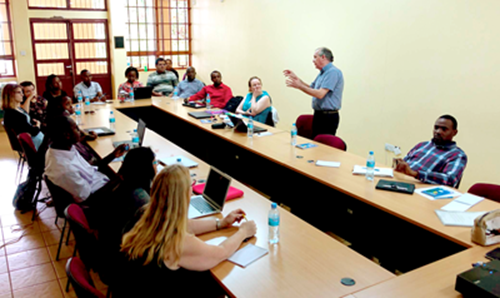
Professor Allen Foster describing the key elements in writing a paper.
B. Mbarara, Uganda – Dr Simon Arunga
Activities that were planned and undertaken after the first workshop included:
-
Providing a cascade seminar on research methodology to residents
-
One on one mentorships – successfully assigned mentors to all trainees
-
Developing research priorities so trainees have a pool of projects to pick from and now find it easier to develop research ideas
Positive changes included inspiring more interest in research amongst trainees, more organised research plans with timelines and more support to residents, with the ability to work with residents from the planning stage. Previously residents would design the whole project themselves and then have it criticised if it was not appropriate. There is now more guidance and flexibility in the programme. There is more emphasis on writing up and presenting research at COECSA. One of the final-year MMeds has a project published in the Journal of Ophthalmology of Eastern, Central and Southern Africa (JOECSA) and has been motivated enough to carry out unfunded research in her own time. Challenges faced include the lack of statistical support for projects.
C. University of Nairobi, Kenya - Dr Emmanuel Nyenze Muindi
Since the last workshop the attendees had identified five research topics for their MMed students. These are at different stages – data collection, ethical committee and proposal stages. Successful outcomes include closer supervision of trainees, easier identification of topics, faster development of proposals and more efficient study times. Challenges include topics being mostly descriptive due to shortage of time and resources and mentoring and inspiring students who have very little background in research. Despite this, the mentors report feeling better able to guide students and to develop questions and objectives using tools like PICO.
Future plans
A. Workshop and presentations at COECSA Congress, Addis Ababa, August 2018
COECSA will be holding another one-day workshop at their annual conference in August 2018 as the first one in 2017 was very well received. In addition there will be a ‘rapid-fire’ session for presentations of dissertations by MMed residents. This will be a first for the COECSA Congress and there is great support for it amongst the organisers.
B. Examples of changes that the three institutions will make to their MMed training programmes as a result of the workshops
- Develop journal clubs – helping residents see what else is out there and how others have developed their questions.
- Encourage residents to give more presentations within the department – weekly and then to COECSA Congress.
- Invite LINK partner / visiting epidemiologist to help improve MMed research questions and assist with improving research supervision by working with supervisors.
- Ensure that more feedback from colleagues and fellow MMed students is part of the training.
- Cascade training and encourage other staff to engage with regular meetings.
- Establish peer groups for first year MMeds, with support from senior students.
- Cross-consultation with other members of staff to strengthen supervision.
- Develop a research network through emails and attending conferences.
- COECSA plans to create a database of supervisors and a research repository for MMed students to make research more accessible.
- Seek further funding to enable more research training workshops to take place in future.
Conclusion
The VISION 2020 LINKS Programme has proved an effective platform for research capacity building in the COECSA region. The 2018 workshop revealed the successes reaped from the 2017 workshop. We look forward to seeing resulting research published as papers and presented at future COECSA Congresses.
References
1. British Council for Prevention of Blindness: www.bcpb.org
2. Burgess P, Gichuhi S, Arunga S, et al. Building research capacity through the VISION 2020 LINKS Programme. Eye News 2017;24(2):38-40.
3. Armstrong EC. The well-built clinical question: the key to finding the best evidence efficiently. WMJ 1999;98(2):25-8.
COMMENTS ARE WELCOME

